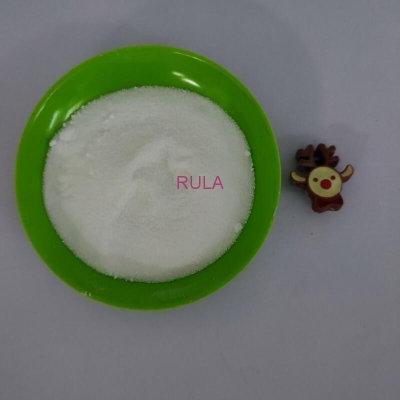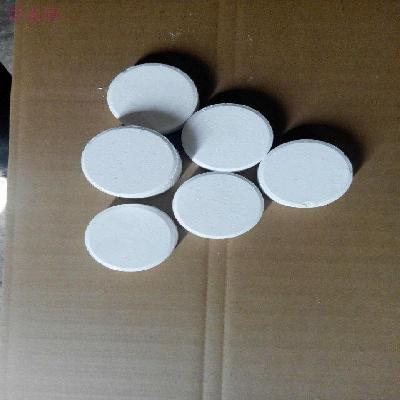-
Categories
-
Pharmaceutical Intermediates
-
Active Pharmaceutical Ingredients
-
Food Additives
- Industrial Coatings
- Agrochemicals
- Dyes and Pigments
- Surfactant
- Flavors and Fragrances
- Chemical Reagents
- Catalyst and Auxiliary
- Natural Products
- Inorganic Chemistry
-
Organic Chemistry
-
Biochemical Engineering
- Analytical Chemistry
- Cosmetic Ingredient
-
Pharmaceutical Intermediates
Promotion
ECHEMI Mall
Wholesale
Weekly Price
Exhibition
News
-
Trade Service
On February 24, 2022, Medicago and GlaxoSmithKline (GSK) announced that Health Canada has approved their production of a novel coronavirus vaccine, trade name COVIFENZ®
.
The vaccine is the world's first approved plant-derived human vaccine
.
Canada has become the first country in the world to authorize the use of a plant-based Covid-19 vaccine
.
Canada's regulator said it would allow two doses of Medicago's Covid-19 vaccine to be given to adults aged 18 to 64, but said there was too little data on people 65 and older
.
The decision was based on a study of 24,000 adults
.
Two doses of the Medicago vaccine in combination with GlaxoSmithKline's adjuvant in this randomized phase 3 study involving more than 24,000 adult volunteers in six countries, including the UK and US, were not previously infected.
Among people with the new coronavirus, the overall effectiveness against all new coronavirus mutant strains was 71.
6%, and the protection rate against severe cases caused by delta was as high as 75%, except for the Omikron mutant strain, because during the study period, Omikron was It has not been discovered, so there is no relevant data
.
No serious adverse events were observed during the trial, and side effects were generally mild to moderate and short-lived, the researchers said
.
The vaccine needs to be stored at 2 to 8 degrees Celsius, and the two doses are given 21 days apart
.
According to previous reports, Medicago uses a virus-like particle from a tobacco plant whose protein has a shell similar to that of the new coronavirus, but lacks the genome of the virus, so it is completely harmless
.
It mimics the external structure of new coronaviruses, making them easily recognized by the immune system
.
In addition to this, Medicago is developing plant-based vaccines for a variety of other diseases, and the company believes a plant-based Covid-19 vaccine could help spark interest in this new medical manufacturing method
.
The following paper is an opinion article published in the journal Science in 2021, which discusses the research progress of using plants to produce vaccines.
For details, please refer to the previous report of our public account: On August 12, 2021, the journal Science published online from Canada Lara Hugues Fausther-Bovendo et al.
of Wahl University published an opinion article titled "Plant-made vaccines and therapeutics", which argues that several recent clinically important advances in plant-derived therapeutic proteins have stimulated interest in plant-made human vaccines.
drug interest
.
In addition, the use of molecular agriculture is particularly suitable for personalized medicine, such as tailoring medicines to individual patients
.
There are many advantages to using plants to produce drugs such as therapeutic proteins and vaccines
.
For one, plants only need greenhouse conditions such as light, water and soil to survive the protein, which is cheaper than the bioreactors needed for bacterial, mammalian and insect cell culture systems
.
Second, unlike traditional production systems, zoonotic pathogens cannot infect plants and thus cannot be a source of contaminants for molecular agriculture-derived products
.
Third, the advantages of molecular agriculture have been enhanced by technological advances such as codon optimization, addition of organelle-specific promoters, humanization of N-glycans, and transient transfection systems, yielding more than 1 mg/g of fresh plant weight
.
Fourth, the plant transient transfection system also increases the speed of production, and can be harvested within days of transfection, rather than months of stable expression
.
In fact, plant-produced vaccines can easily be made against new pathogens or emerging strains
.
Therefore, the speed of molecular agriculture is particularly suitable for personalized medicine
.
In 2019, a plant-based vaccine against the influenza virus completed Phase 3 clinical trials with encouraging results
.
In March 2021, Phase 3 trials of an adjuvanted plant-based vaccine (CoVLP) against SARS-CoV-2 (NCT04636697) began
.
Plant-produced proteins have several advantages over their counterparts produced in bacterial, mammalian or insect systems for the production of vaccines
.
Unlike bacteria, plants are capable of post-translational modifications
.
Plants express different glycans, which make plant-derived proteins more immunogenic than their mammalian counterparts
.
In plant-made vaccines, virus-like particles (VLPs) are produced that contain the target protein (immunogen) of the target pathogen and plant components within the particle
.
These plant components of VLPs, such as lectins, glycans, saponins, and heat shock proteins, have adjuvant properties that could further enhance immune responses against plant vaccines and potentially reduce the need for adjuvants in vaccine formulations
.
Although the increased immunogenicity of plant protein is beneficial for vaccines, it may be detrimental to therapeutic proteins, potentially reducing their in vivo efficacy and leading to adverse events
.
Despite these limitations, monoclonal antibodies against HIV (NCT01403792) and Ebola (NCT02363322, NCT02363322) have reached clinical development
.
In human trials, these antibodies were well tolerated intravenously (Ebola virus)
.
Edible plants such as cereal crops, tomatoes, corn, and rice are being developed for the oral delivery of plant-based therapeutic proteins
.
Oral administration is a user-friendly alternative to intravenous administration
.
In addition, oral administration can mitigate adverse events associated with intravenous administration of the drug
.
Administered orally, plant-made therapies may require minimal processing, potentially skipping expensive and time-consuming steps in the manufacturing process
.
Products for oral administration can also be stored in lyophilized (dehydrated) form for long periods of time at room temperature, significantly reducing production and storage costs while facilitating administration
.
In addition, edible vaccines are also in development
.
The safety and feasibility of this approach was demonstrated in a proof-of-concept Phase 1 clinical trial
.
show that new edible plant vaccines can now generate meaningful immune responses
.
However, further optimization is required before clinical acceptance of these vaccine candidates
.
It is critical to ensure that edible plant vaccines do not cause allergies to the plants used for production, especially widely consumed plants such as rice, grains and corn
.
However, since the doses of therapeutics are much higher than vaccines, investment in manufacturing infrastructure must be increased, and production costs need to be further reduced to enable large-scale manufacturing of phytotherapy products
.
Paper link: https://science.
sciencemag.
org/content/373/6556/740







